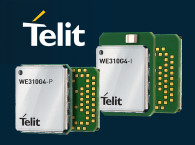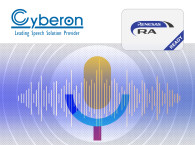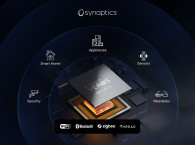
"Industry-wide, 5 billion Bluetooth enabled devices are forecast to ship in 2022," says Mark Powell, CEO of the Bluetooth Special Interest Group (SIG), the standards organization that oversees Bluetooth technology. "The commitment and involvement of Bluetooth SIG members like Texas Instruments allow Bluetooth technology to meet the growing demands for enhanced wireless connectivity in a wider range of applications. I am grateful for the contributions of our membership in delivering innovative solutions that benefit the Bluetooth ecosystem and help broaden the adoption of Bluetooth technology."
The CC2340R2 and CC2340R5 wireless MCUs are built on the foundation of TI’s decades of wireless connectivity expertise, offering flash memory of 256KB and 512KB respectively - ample space for application code. Additionally, with the proliferation of Bluetooth LE applications, designers need additional memory capacity to easily update software remotely. The new wireless MCU family features 36KB of RAM with over-the-air download support.
The new MCUs include industry-leading standby current of less than 830 nA, which is 40 percent lower than competing devices. The reduction in standby current helps extend battery life for up to 10 years on a coin cell battery in wireless applications such as electronic shelf labels. The CC2340 family also features an operating temperature range of -40ºC to 125ºC to help ensure a stable connection across applications, from industrial sensors and medical laboratories to outdoor environments such as EV chargers or smart meters.

Developers are also able to expand RF performance and connection range with an output power up to +8 dBm, the industry’s highest among competing Bluetooth LE wireless MCUs. In addition, the CC2340 devices feature an integrated RF balun to enable a simpler design with fewer external components, leading to cost savings.
"The new MCUs will provide high-quality RF and power performance at an affordable price, backed by unrivaled technical support and internal manufacturing capacity investments that will help meet our customers’ demand for years to come," says Marian Kost, vice president and general manager of Connectivity at Texas Instruments.

With the increased memory, longer battery life and wider temperature range at an affordable price, developers can enable more connected everyday applications such as smart-home hubs and personal electronics that can take advantage of the CC2340 MCUs’ wireless protocol support and output power range up to +8 dBm.
To simplify implementation, engineers can connect with TI applications engineers through the TI E2E Bluetooth support forum. Engineers also have access to the proven, royalty-free Bluetooth LE software stack, which TI has supported and kept updated since 2010.
To get started with the CC2340 wireless MCUs, developers can request samples as well as a development kit (LP-EM-CC2340R5) priced at US$39. The new wireless MCUs are expected to be in volume production in the first half of 2023. Pricing for the CC2340 family will start as low as US$0.79 for 1,000-unit quantities.
www.ti.com/cc2340
www.ti.com/wireless







